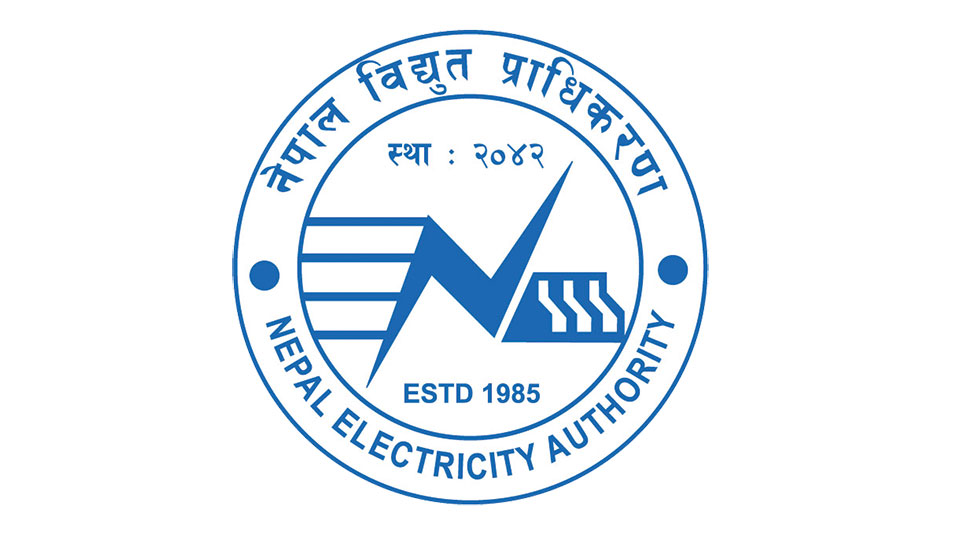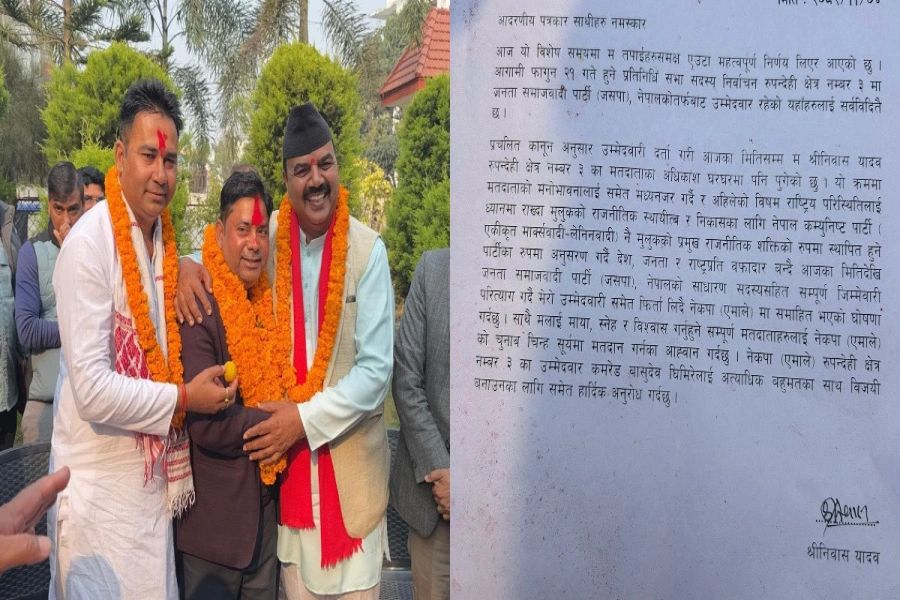KATHMANDU, Sep 3: The fate of the long-pending Electricity Bill 2080 BS, which has been repeatedly introduced in parliament, remains uncertain as it faces another deliberation in the Federal Parliament. The Council of Ministers, in a meeting this week, decided to endorse the Electricity Bill and forward it to the Federal Parliament. Shakti Bahadur Basnet, the Minister for Energy, Water Resources, and Irrigation, has consistently asserted that the bill, designed to amend the Electricity Act of 2049 BS, will soon be presented in the Federal Parliament.
Madhu Prasad Betuwal, the spokesperson for the Ministry of Energy, Water Resources, and Irrigation, has confirmed that the bill, following the Council of Ministers' approval, is in the process of being registered in the Federal Parliament after completing the necessary formalities.
The energy minister has also reaffirmed the government's commitment to submit the bill to parliament expeditiously, stating, "The Electricity Bill's foundation has been laid, and it is certain that the Federal Parliament will pass the Electricity Bill this year."
Notably, the previous iteration of the Electricity Bill, registered as the Electricity Bill 2077 BS, was withdrawn from the National Assembly by the then Minister of Energy, Water Resources, and Irrigation, Pampha Bhusal, on September 16, 2022. Despite significant developments in Nepal's hydropower and energy sector over the past 31 years, the Electricity Act has remained largely unaltered. Earlier, when the bill transitioned from the National Assembly to the House of Representatives and failed to secure approval, concerns arose that it would lapse into obscurity. There were considerations to maintain the status quo without passage and resubmit it after the elections for swift approval.
Bills relating to Appropriation Bill passed

In light of the bill's withdrawal, the Council of Ministers, during a meeting on September 23, 2022, approved an ordinance aimed at amending the Electricity Act of 2049 BS and subsequently submitted it for presidential approval on September 27. However, the bill was rendered ineffective as it did not receive the President's ratification.
Ganesh Karki, president of the Independent Power Producers' Association, Nepal (IPPAN), emphasized the need for swift passage of the Electricity Bill, describing it as essential for the contemporary energy landscape. Karki noted that the existing Electricity Act of 2049 BS lacks practicality and scientific relevance in the current context, necessitating the immediate enactment of a new law. He further underscored the importance of introducing provisions to involve the private sector in the electricity industry, which were notably absent in the previous Electricity Act.
Similarly, Spokesperson Betuwal acknowledged the legislative authority of the sovereign parliament in passing the bill. He highlighted key changes proposed in the new electricity bill, particularly the shift from the 'first come, first served' approach for hydropower projects to a competitive electricity production framework. Unlike before, where licenses were exclusively granted by the Department of Electricity Development and the Ministry of Energy, all three tiers of government are now authorized to grant permissions.
Betuwal also elaborated on the provision of electricity trade licenses and customer service licenses, which have been incorporated into the proposed bill. The project optimization will be based on the project's geographical basin, streamlining project operations.
Section 34 of the proposed electricity bill outlines that an organization holding a business license will have the authority to engage in electricity trading. Moreover, the bill introduces provisions for the purchase of electricity produced by organizations holding electricity generation licenses, enabling them to engage in wholesale or retail electricity sales and participate in international electricity trade.
The draft of the Electricity Bill outlines several important provisions aimed at regulating the electricity industry. One such provision mandates that organizations holding licenses must submit an annual statement of their electricity-related business activities to the licensing authority within three months from the end of the fiscal year. Additionally, the bill permits international electricity trade, requiring organizations with electricity trade licenses to obtain approval from the ministry. Importantly, if the conditions for exporting electricity are stipulated in the electricity production permit itself, separate approval for international trade will not be necessary. However, all approvals should align with national interests.
Section 36 of the bill addresses royalty and electricity tariff matters. For organizations holding electricity production and transmission licenses, it specifies a royalty payment of Rs 100 per connected capacity and two percent of the selling price per unit (kilowatt-hour) for energy royalty. This royalty will be payable for 15 years after the organization commences commercial electricity production. After this initial period, the organization must pay an annual connected capacity royalty of Rs 1,200 and an energy royalty of 12 percent of the selling price per unit.
For power plants established for captive and co-generation purposes, the draft bill sets the capacity royalty at Rs 200 per kilowatt per year.
Furthermore, if excess electricity from captive and co-generation power plants is sold into the system, the bill stipulates that an energy royalty of 12 percent of the selling price per unit (kilowatt-hour) must be paid.
The bill also specifies that royalties should be paid in the same currency in which the electricity was sold. Organizations holding licenses obtained at the state or local level are required to deposit royalty amounts into the federal separate fund in accordance with prevailing laws. These provisions are designed to streamline and regulate the electricity sector, ensuring that it operates efficiently and in alignment with national interests.






































